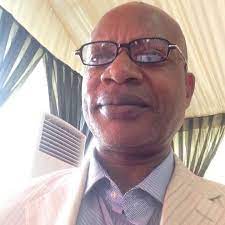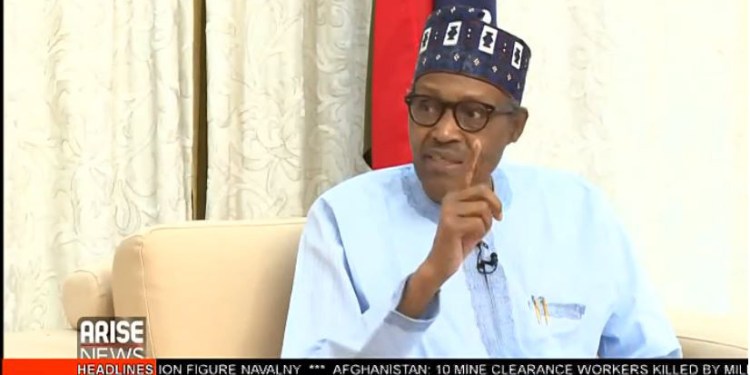By Ehichioya Ezomon
Nothing is as confusing, and confounding as the proposed removal of subsidy on premium motor spirit (PMS) or petrol in 2022, to allow for market forces to determine the pricing per litre of the product.
Currently, the Nigerian National Petroleum Corporation Limited (NNPCL) claims it spends an average of N1.8 trillion annually or N150 billion monthly, to subsidise the product.
This enables stabilisation of the pump price of petrol at an average of N162.5 per litre. But with removal of the subsidy in June 2022, the price will rise above 100 per cent to N340 per litre.

Two groups in the society are uncomfortable with this double-header: The masses that will bear the brunt of the withdrawal, and polity watchers that monitor government policies and actions.
To the masses, it seems a cruel joke for the government to even contemplate removal of subsidy on petrol at a time of economic and social hardships that attend high cost of living amid abysmally low or no purchasing power for millions of Nigerians.
Since the advent of Muhammadu Buhari’s administration in 2015, prices of goods and services have climbed steadily. For instance, a bag of 50kg of rice that’s sold at N8,000 in 2015 now sells at N34,000 – over 300 per cent jump, with market analysts forecasting the price may rise to N40,000 a bag by Christmas of 2021.
A similar scenario is projected for cooking gas. A 12.5kg filled at N2,700 in October 2015 went for N9,000 last week, and it’s estimated to peak at N10,000 by Christmas, indicating that within six year, the price of cooking gas rose by over N1,000 per year.
In the interim, prices of foodstuffs are hitting the roof, with millions of Nigerians, including the N30,000 minimum wage earners, unable to feed an average family of six.
Actually, millions are starving, going without food for days. This excludes the millions, mainly women and children, in Internally Displaced Persons (IDPs) camps, whose conditions are dire.
Yet, the government wants to increase the masses’ burden by removing petrol subsidy, which most Nigerians won’t object to if it doesn’t induce more suffering. But it definitely will!
To mitigate the inevitable effects of the subsidy removal, the government proposes a N5,000 monthly payment to 40 million Nigerians, and that’s where the issue gets complicated, with polity watchers needing answers to the following questions:
* For a country that lacks adequate, reliable and accurate data, how did the government arrive at 40 million Nigerians to qualify for the subsidy stipend? * How did the government estimate that N5,000 monthly will be enough to cushion the impact of the subsidy withdrawal on the 40 million beneficiaries? * Why will the government remove subsidy of N1.8 trillion, and replace it with a payout of N5,000 to 40,000 at a monthly average of N200 billion and N2.4 trillion per year? * Why will government be spending N600 billion more than the N1.8 trillion subsidy that’s considered too high by all standards? * How will the government convince a sceptical citizenry that the N2.4 trillion annual stipend to 40 million Nigerians isn’t a channel to loot more than was reportedly fleeced under the N1.8 trillion regime?
The totality of these queries is what Afrobeat legend, Fela Anikulopo-Kuti, would label as “government magic,” by which N600 billion will be added to the “scrapped” N1.8 trillion subsidy to arrive at a new subsidy of N2.4 trillion for 40 million Nigerians.
Government may argue that with increase in the price of petrol from N162.5 to N340 per litre, more money will come into its coffers, and thus the increase in subsidy to assist 40 million Nigerians.
But with the opaque nature of administering the current subsidy regime, which many Nigerians perceive as being looted by interests in the public and private sectors, the allocation of N5,000 monthly to 40 million Nigerians looks like another avenue for thievery.
So, here comes the voice of former Senator Dino Melaye, warning that the removal of N1.8 trillion subsidy and its replacement with N2.4 trillion is a ploy to “steal our common patrimony,” which, he says, is unacceptable to him, and the Anti-corruption Network.
Having multiplied 40 million by N5,000 per month, and arrives at N200 billion monthly, which translates into N2.4 trillion per annum, Mr Melaye asks a rhetorical question:
“If you want to rescue the country by the removal of subsidy because we are spending too much, and you want to replace N1.8 trillion with N2.4 trillion, then where are we going as a country, where are we going as a nation?”
“The hypocrisy is too enormous,” Melaye says in a video posted on social media on November 29, 2021. “So, I call on the Buhari administration to keep its N5,000 and remove subsidy, if you want to remove subsidy, and look for more innovative, intellectually-mobile strategies of taking us out of the woods.”
To Melaye, the N2.4 trillion proposal “is just a typical interpretation that the government has lost its sense of direction, they have no intellectual mobility… and they cannot device other strategic means of reviving our economy, and creating employment and taking us out of the doldrum.”
“So, I call on Nigerians to reject this initiative of N5,000 because it is another way to make some elite in this country richer; it is another way of minting funds for some individuals,” Melaye says.
He states that those pushing for the ‘new subsidy’ “will steal the money,” adding that “the masses the money is meant for will not get it because we don’t have the data to exercise this procedure; we have no legitimate means of even reaching 40 million Nigerians.”
“There is nothing, there is no data, there is no banking process, there is no technology or even the wherewithal to execute this project they are claiming,” Melaye laments.
“So, I call on Nigerians to reject this N5,000 because we are just replacing N1.8 trillion with N2.4 trillion, and the burden, at the end of the day, is on the masses of this country. Say no,” Melaye urges.
Senator Melaye may not be your right candidate to pontificate on government policies and programmes because he’s among the elite seen as causing problems for Nigeria and Nigerians.
However, he’s spot on, on the vexed issue of removal of one subsidy and replacing it with a higher one under the guise of cushioning the effects of a new petrol price on the masses.
Going by his philosophy of “If you talk you will die, if you don’t talk you will die,” Melaye has sent a cautionary message to the authorities, to shelve the N5,000 monthly “subsidy” to 40 million Nigerians because it smells like a scam, and it’s a scam.
If the government can no longer subsidise petrol, it shouldn’t come with a variant worse than the subsisting one. We’re tired of subsidy or bridging cost in trillions for the imported refined product for a country that’s the sixth largest producer of oil in the world.
As Charlie Boy Oputa would say, “Our mumu don do.” We’ve been conned enough by government and the elite. Let’s take a final stand on petrol subsidy, and stop the confusion and rigmarole!
Mr. Ezomon, Journalist and Media Consultant, writes from Lagos, Nigeria.




GIPHY App Key not set. Please check settings